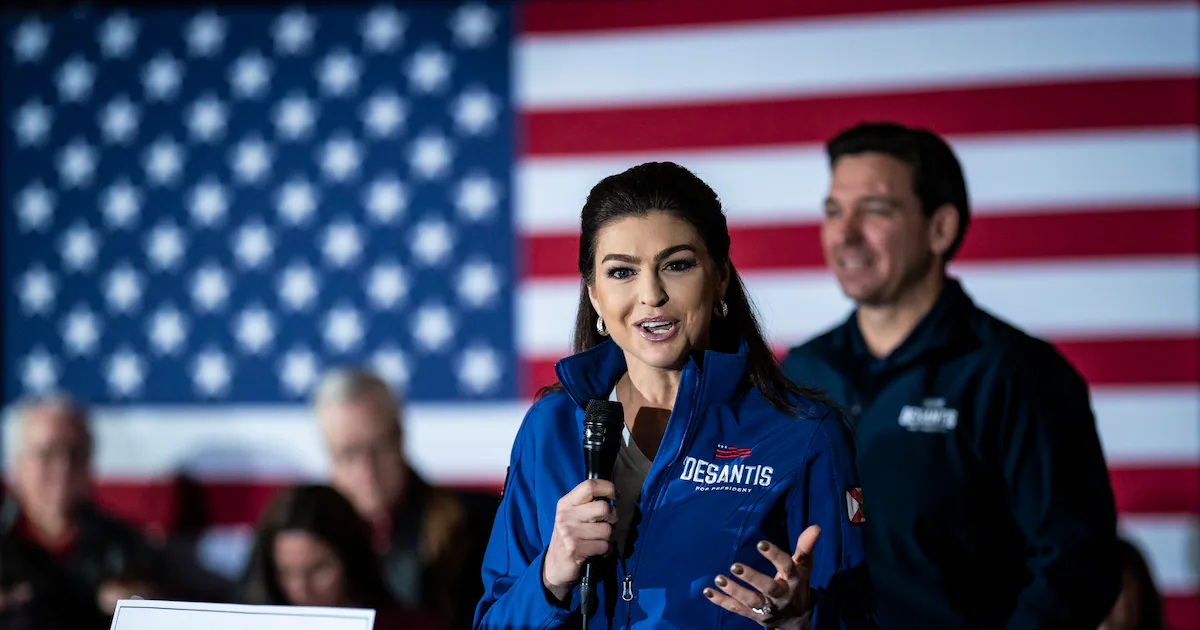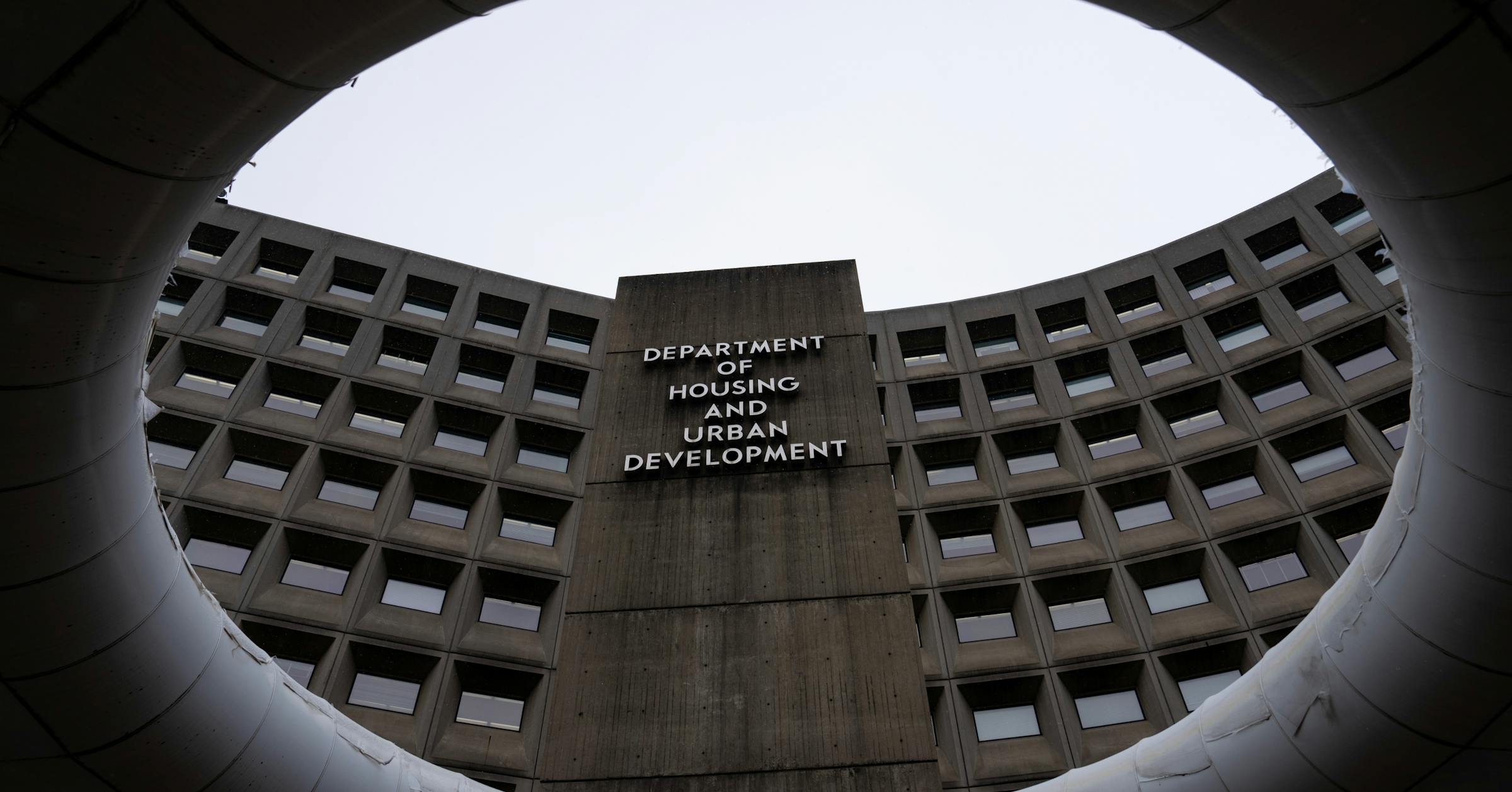Copyright Anchorage Daily News

When Casey DeSantis, the first lady of Florida, recently disclosed how the state would distribute $60 million for cancer research, she cited Hollywood actor Mel Gibson. The movie star had popped up on Joe Rogan’s podcast early in 2025, promoting the supposed cancer-curing powers of ivermectin, the antiparasitic drug that gained a following during the pandemic as a possible covid treatment despite research showing it is ineffective against the virus. DeSantis said a portion of Florida’s research money would now go to study the drug as a potential cancer treatment. “Mel Gibson was on Joe Rogan’s podcast and he was talking about people that he was friends with and they overcame Stage 4 cancer,” DeSantis, a cancer survivor, said as she announced the move last month. “We should look at it, we should look at the benefits of it. We shouldn’t just speculate and guess.” Ivermectin has taken on symbolic power as part of the backlash against public health authorities that helped spawn the “Make America Healthy Again” movement. Championed by Health and Human Services Secretary Robert F. Kennedy Jr., MAHA, an echo of President Donald Trump’s “Make America Great Again” movement, has fused politics and health care activism to become a force in federal and state policymaking. In laboratory settings, studies have shown ivermectin could have anticancer effects, but oncologists and medical experts caution there is not yet evidence that ivermectin is effective to treat cancer in humans. Despite the lack of evidence, a growing number of patients are asking doctors about using the drug, alarming physicians who told The Washington Post they fear more patients might eschew traditional treatment that could help them in favor of an unproven path. While many experts dismiss Florida’s decision to fund its study as financial folly and a distraction from the fight against cancer, others say it presents an opportunity to dispel myths or perhaps even defy the odds and uncover something mainstream science has overlooked. Florida’s plan to bankroll ivermectin research comes as prescription rates for the drug this year are nearly twice as high as pre-pandemic prescribing levels, according to electronic health record data analyzed by a Virginia Tech-UCLA research team this month. After reaching a peak in 2021, prescriptions fell in 2022 but began increasing again in 2024 - and then continued to rise in the first half of this year, according to the data. Specialists say interest in ivermectin for cancer care following Rogan’s podcast is probably a factor in its resurgence. Gibson’s appearance on Rogan’s show went viral, with almost 12 million views on YouTube and countless more as clips rebounded across social media. DeSantis has not announced who will conduct the taxpayer-backed research, a decision that could help define whether the effort will produce trusted results. The governor’s office did not respond to a request for an interview. DeSantis said in her remarks in September that studying ivermectin and other generic drugs should be paired with research into the best preventative measures people can take against cancer, including healthy nutrition. During the news conference, Florida Surgeon General Joseph A. Ladapo lauded the state’s effort to study ivermectin. Ladapo made national headlines last month with his state’s controversial efforts to end school vaccine mandates. “It’s been weighed down by all this politics, especially during the Biden administration,” Ladapo said of the drug. “I hope we continue to reject the normal and pursue a path that feels righteous.” Doctors said in interviews that unfounded promotion and internet buzz is driving cancer patients to seek out the drug. Samyukta Mullangi, a medical oncologist at Tennessee Oncology, said patients ask every day about ivermectin, and she has adjusted her conversations to encourage them to disclose whether they’re taking it. After all, they too may be seeing billboards she’s spotted on the way to Chattanooga advertising the drug, she said. “It’s as if the world of pharmaceutical sciences had been reduced to this one drug that we were somehow gatekeeping from our patients,” she said. “There’s really no credible evidence supporting its use. There is evidence of potential harm.” Ivermectin is approved by the Food and Drug Administration to treat some parasitic worms, head lice and skin conditions such as rosacea. During the pandemic, it enjoyed a resurgence as an unproven alternative to other treatments before being found ineffective against coronavirus. The FDA says that overdosing on ivermectin can result in gastrointestinal symptoms and neurological effects. More recently, conservative figures such as Gibson, fringe medical groups and social media influencers have continued to promote it as a treatment for cancer. Republican lawmakers in Tennessee were the first to make it available in their state without a prescription in 2022, followed by Arkansas, Idaho, Louisiana and Texas - although medical specialists say few pharmacies appear to be stocking it for over-the-counter purchase. Because ivermectin has been a generic drug for years and is cheap to produce and sell, major pharmaceutical companies have no incentive to study its effectiveness for other diseases. The federal government’s ongoing clinical trial registry lists a study of ivermectin in cancer patients, in combination with established cancer drugs, that is still in early phases. Opponents of the drug industry and mainstream medical doctrine have seized on this to claim a conspiracy, asserting without evidence that industry and government have been in league to keep ivermectin out of the hands of people it could help. Views of ivermectin’s potential have reached the highest levels of government. Health and Human Services Secretary Robert F. Kennedy Jr. tweeted a year ago, before Trump won a second term and Kennedy was nominated for his job, that the FDA was deliberately suppressing use of ivermectin, along with a laundry list of other alternative therapies. It was unclear to what medical purpose for ivermectin he was referring, but he has promoted it for coronavirus. Some of Kennedy’s supporters have sold ivermectin as part of medical emergency kits. Some oncologists question whether Florida’s move is an appropriate use of taxpayer money, given other public health priorities. Research funding opportunities are shrinking nationwide as the Trump administration tries to reduce overall federal research spending. “The shame is there are probably three dozen compounds that I can name right now that have scientific reason why we think they might be useful in the treatment of cancer, and we do not have the money to do the research to assess those drugs,” said Otis Brawley, professor of oncology at Johns Hopkins University, who previously was the chief medical and scientific officer of the American Cancer Society. There is some laboratory evidence suggesting ivermectin could have anticancer effects, as laboratory studies in cells and animals show it kills cancer cells by making them “self-destruct,” said Julie R. Gralow, Chief Medical Officer and Executive Vice President of the American Society of Clinical Oncology. “However, what works in a petri dish or a mouse does not always translate into being safe or effective for humans,” she said in a statement. “Key considerations for studying use in a cancer setting would be to establish effective dosing, which based on some laboratory studies might need to be significantly higher than dosing currently approved for antiparasitic indications.” But it’s important to note a lot of compounds can show cancer-killing effects in a petri dish, Brawley said, such as bleach, which can be toxic for humans. Still, University of Alabama at Birmingham professor of gynecologic oncology J. Michael Straughn thinks desperate patients looking for cures deserve scientific answers. It was not until clinical trials had been conducted on ivermectin for coronavirus treatment that doctors could definitively tell their patients it did not work, he said. Plus, the drug is cheap, so studying it wouldn’t cost as much as developing new drugs. “I think it’s a good use of resources to study it so that we’ll have the answer,” he said. “I mean, we just can’t pick a side and say, ‘Oh, I either believe in it or I don’t,’ without having the data. ‘Fine line’ The real surge began this year, Mullangi said, citing the January podcast interview between Trump supporters Rogan and Gibson. In the episode, Gibson discusses with Rogan how three of his friends beat Stage 4 cancer by taking ivermectin and fenbendazole, as well as mentioning drinking “hydrochloride something or other” and methylene blue. Medical experts say the combination that includes a dog-deworming medication and synthetic dye is unproven and lacks scientific evidence. DeSantis, in her announcement, only pointed to ivermectin. Gibson’s publicist, Alan Nierob, told The Post he was unavailable for comment as he was directing a project outside of the country. Attempts to reach Rogan were unsuccessful. John Mafi, a primary care physician at UCLA, said a longtime patient with metastatic cancer told him earlier this year that they were taking a high-dose combination of ivermectin and fenbendazole. Mafi urged the patient to consider more standard therapies for their cancer, and explained that it was a clinically unproven combination that could be toxic in certain doses. Most importantly, Mafi said, the patient - who was diagnosed about a year prior - was risking precious time with an unknown therapy. Despite Mafi’s warnings, the patient decided to proceed with their own regimen, and was more inclined to trust what they read on the internet than their longtime physician. A few months later, Mafi said he saw the patient again, and the cancer had progressed. “It’s frustrating because you try to reason with the patient on the risks and benefits of these alternative therapies, but you don’t want to come off as judgmental,” he said. “You have to walk this fine line.” Gibson’s promotion has echoes in earlier Hollywood promotion of dubious cures. Two physicians The Post spoke with compared the current ivermectin craze inspired in part by Gibson to actor Steve McQueen’s cancer care using laetrile, a debunked treatment made from apricot pits that can have dangerous effects and risk cyanide poisoning. Some of the current push behind ivermectin comes from supporters of Kennedy who had pushed the drug during the pandemic. The Independent Medical Alliance, formerly known as Front Line Covid-19 Critical Care Alliance (FLCCC), was founded by a group of doctors who pushed back on public health guidance during the pandemic. The nonprofit went on to push ivermectin for coronavirus and the flu. It then began to push it for cancer, posting a recommended dosing regimen online last October, saying “it appears that ivermectin is widely prescribed across the world for cancer. Further, we are aware of multiple ‘anecdotal’ reports of solid tumors that have shown a dramatic response to repurposed drug regimens that included ivermectin.” While other aspects of the regimen are footnoted, that statement does not have further evidence attributed. The physician identified on the Independent Medical Alliance’s website as the author of the recommended dosing regimen for cancer, Paul Marik, no longer possesses an active medical license, according to the websites of the Federation of State Medical Boards and the Virginia medical board. His American Board of Internal Medicine certification was revoked after promoting ivermectin as a treatment for covid after the medical community found it to be ineffective. The Independent Medical Alliance’s website also includes a video testimonial from a cancer patient who credits his turnaround to ivermectin, as well as a fundraising effort to contribute to the nonprofit’s efforts for “cancer care.” The alliance and Marik did not respond to requests for comment. The group issued a statement in 2023 about Marik’s fight for his certification, in which Marik is quoted as saying: “Following the ABIM’s ‘consensus’ will only deprive patients of important treatments that have saved lives all over the world.” Other prominent figures who champion the MAHA movement and support Kennedy have promoted wellness kits that include ivermectin. Simone Gold, the founder of America’s Frontline Doctors, which rose to prominence pushing hydroxychloroquine for coronavirus, sells a “premium pack” for $300 that includes “weight-based Ivermectin.” Her subscription health care service posted last summer that “By raising awareness about the potential of ivermectin and other groundbreaking cancer treatments, we empower patients and healthcare providers with the knowledge needed to make informed decisions.” Gold did not respond to requests for comment. Another figure linking ivermectin with cancer treatment is Peter McCullough, a physician and public commentator who told The Post he offers medical advice to Kennedy when he calls. McCullough serves as chief scientific officer for The Wellness Company, which sells a “detox” supplement aimed at those who have taken the coronavirus vaccine. The company has linked the coronavirus vaccines to “turbo cancers” and a variety of other maladies, claims not based in evidence, medical experts have said. The Wellness Company sells an “Medical Emergency Kit” that includes ivermectin for $299.99. On its website this March, the organization discusses the “anticancer effects” of ivermectin. “It’s individual patient choice,” McCullough told The Post. “If the patient who has cancer and that patient’s group of doctors thinks ivermectin is worth a try, everyone agrees that The Wellness Company can be one of many, many sources of ivermectin for that patient.” - - -



